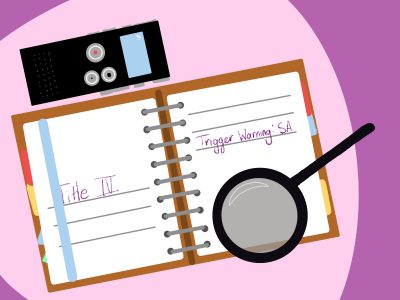On Feb. 17, Harvard Crimson published an editorial titled “We Are Not a Title IX Substitute,” after the collegiate newspaper took the brunt of a sexual misconduct investigation into three Harvard professors. Two months later, as The Daily Free Press looks back on a year of publishing, there have been many moments when our newsroom bore an uncanny resemblance to exactly the kind of “Title IX Substitute” our peers at Harvard coined.
Despite years of Beanpot rivalries and competing for prospective students’ attention, it has become evident that no matter which side of the Charles River you’re on, student journalism has become intertwined with sexual misconduct investigations of an incredibly heavy nature.
In September of 2021, The Daily Free Press reported on a student alleging inappropriate internet communication with BU professor Eric Ruske. That December, we covered a Boston University Title IX investigation into Carlos Apostle. And just this March, a story came out on a former Sargent student being charged with similar counts of sexual assault.
Examples of student newspapers publishing these heavy stories, stories that have profound impacts on their communities, are ubiquitous — just a quick peruse on Average State University’s independent newsroom website yields multiple troubling articles on various counts of sexual harassment.
But the increasing role student journalism has had to play in reporting on the subject brings up an important question. Why exactly do so many victims of sexual harassment feel more comfortable bringing their stories to 18 to 20 year olds in newsrooms, than official Title IX resources at their universities?

In theory, the media is the last place victims of sexual assault want to go with their story. With everyone from your middle school teacher to Fox News having free access to published stories, it’s a gamble worse than the BU housing system whether their story will be met with sympathy or scrutiny. Additionally, though an article can get retweets and comments from the faithful readers of student newspapers, it cannot directly lead to, say, the firing of a predatory professor or a formal court case.
The case for reporting on sexual assault gets more complicated when considering student journalists. Although we pour hours of hard work and careful consideration into these pieces, ultimately, as Crimson pointed out, we lack formal professional training in the subjects they entail.
Perhaps the reason there seems to be more interview recordings of sexual assault allegations than formal Title IX investigations — never mind their actual results — is a lack of transparency and accessibility underlining the whole process. Launching a Title IX investigation is notoriously convoluted, and something universities don’t make clear to their students how to do. What’s more, once an investigation is opened, any further action is tucked safely away from the prying eyes of the public.
This privacy is undeniably beneficial for those involved in the case, but it creates an aura of inaccessibility that makes victims of sexual assault wary of sharing their stories. More compelling of a deterrent is universities’ vested financial interest in downplaying mounting sexual misconduct allegations against their staff. After all, it’s difficult to justify paying upwards of $50,000 a year to walk into class every day not knowing if you’ll receive an economics lecture or an untoward comment.
We have watched as Harvard professor Gary Urton held his position for 18 years, during which time he sexually harassed multiple students. We have watched Florida State University allow Jameis Winston to continue playing football for them after a woman accused him of sexually assaulting her in 2012. With the example universities have set thus far, it’s no wonder victims of sexual misconduct feel they’ll get more justice from a first year journalism student than their school’s Title IX office.
To be clear, the goal of journalism is to seek the truth and tell it. If student journalism can provide a safe space for victims and help in any way to bring them justice, we do not shy away from this role. But the phenomenon the Crimson has commented on, the phenomenon occurring in student newspapers across the nation, should not go unnoticed.
Every student journalist reaching out to sources, contacting Title IX experts and editing late into the evening is a physical reminder of the inadequacies of universities when it comes to sexual misconduct occurring on their campuses. Maybe it’s unfair for students burdened with the prospect of uncompleted HUB credits to be doing the work of Title IX officials. Maybe exposing the truth in this way is what they signed up for when they agreed to be student journalists.
Whatever the case is, this cannot and should not be solely up to them.
Correction: An earlier version of this story incorrectly said “a Harvard professor” in the lede. It has been updated to reflect that the investigation involved three Harvard professors.





















































































































